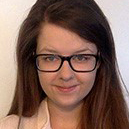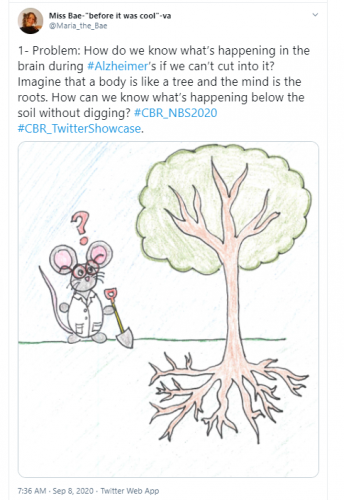
 By Bronwyn Lyons, PhD Candidate, Strynadka Lab & Marie-Soleil Smith, PhD Candidate, Côté Lab
By Bronwyn Lyons, PhD Candidate, Strynadka Lab & Marie-Soleil Smith, PhD Candidate, Côté Lab
The 9th annual – but first virtual – Norman Bethune Symposium honoured the work of Dr. Norman Bethune, an astounding Canadian physician who shaped the foundation of transfusion medicine and universal access to healthcare. The symposium kicked off with a talk from Dr. Graham Sher, CEO of Canada Blood Services (CBS). He highlighted the factors of significance for the blood sector regarding the COVID-19 pandemic, including politics, global supply chains, social and human development, and health. The talk concluded by describing how the CBS will respond to factors of significance and the changing climate by enhancing resilience and agility, changing services, increasing domestic self-reliance, and responding to changing societal norms.
Following this discussion, Dr. Karen Nelson of Bloodworks Northwest presented her work on the effects of the removal of white blood cells (leukoreduction) and irradiation of blood products to reduce adverse transfusion-related immune responses. Next to speak was Dr. Nareg Roubinian of the Kaiser Permanente Division of Research, who also described research pertaining to transfusion efficacy, highlighting the relationship between donor, component, and recipient linkages and how they can alter transfusion efficacy outcomes.

In his opening notes at the Norman Bethune Symposium, CBR Director Dr. Ed Conway (pictured above) presents a twofold ode to Dr. Norman Bethune and his birthplace, the latter of which is now known as the “Bethune Memorial House National Historic Site”.
The first set of trainee talks covered a diverse set of topics, from machine learning of red blood cell (RBC) deformability to lipid nanoparticles for gene therapy. Erik Lamoureux of the Ma lab presented his work on developing machine learning techniques to measure RBC deformability in blood, which can allow for assessment of quality for transfused blood. Next up we heard from Niloy Chatterjee at the University of Calcutta in India, who discussed our evolving understanding of the role of COVID-19 blood infections. Last in this set was Amy Wong Strilchuk of the Kastrup lab, who discussed the use of transient gene therapies that could be used for temporarily depleting factor XIII, which may help decrease thrombosis in at-risk individuals, an often-deadly condition.
Dr. Karina Yazdanbakhsh of the New York Blood Centre followed with research from her lab discussing the importance of the immune response in blood transfusion in sickle cell disease (SCD). In patients with SCD, hemolysis – or the breakdown of RBCs – leads to accumulation of sickled cells within the vasculature and consequent occlusion of oxygen from tissues, resulting in multiorgan failure.
We next heard from Dr. Mel Krajden, director of Virology at BC CDC and Professor at UBC. Dr. Krajden gave an update on the COVID-19 response, including transmission and the use/efficacy of personal protective equipment, as well as challenges in the development of a vaccine. The post-lunch sessions started off with another take on donor characteristics and recipient outcomes in blood transfusions from Dr. Michelle Zeller of McMaster University. She highlighted the discrepancies in over 30 observational studies on this topic. From her research Dr. Zeller noted that the risk of mortality to recipients was increased when the donor was young (under the age of 20) and if the transfusion was sex mismatched.
The presentations on transfusion-related research were followed with a personal story from Rob Cooper. Rob is a person living with hemophilia. He is also film producer and the creator and writer of Unspeakable, a film that recounts the tainted blood scandal in the 1980s. Rob was directly affected by the incident, acquiring Hepatitis C through blood product transfusion. After describing the complexities of the scandal and the subsequent inquiry, he left us with the important notion to question the institutions that serve us and to always fight for the truth. Following Rob’s presentation was one of his own physicians, Dr. Jerry Teitel of St. Michael’s Hospital and the University of Toronto. Dr. Teitel described his recent research on acquired hemophilia and underlined key points that differentiate acquired and congenital hemophilia, such as varying clinical presentations and response to therapies.

Twitter Research Showcase Thread by showcase winner Maria-Elizabeth Baeva
Our last set of trainee talks was led by Polina Petlitsyna of Dr. Jenna Usprech’s lab at UBC’s School of Biomedical Engineering, who discussed teaching science to seniors. She developed a cell biology program that is tailored to senior learners and worked to improve public trust in science among these learners, especially vital during the COVID-19 pandemic. Dr. Marine Theret, a postdoctoral fellow in the Rossi lab, covered important cell-signaling factors that are involved in modulation of inflammatory environments, like multiple sclerosis. Lastly, we heard from Keiko Patterson who is part of a group of UBC medical students that traveled to Nepal over the course of 2015-2020 to address the prevalence, education and management of sickle cell disease in the Indigenous Tharu population.
The second to last talk of the day was given by Dr. Martin Schreiber at the Oregon Health and Science University, who discussed coagulopathy in trauma patients. He reviewed the benefits of various transfusion protocols in trauma medicine, such as cryoprecipitates and fibrinogen concentrates. Lastly from CBR, we heard from Dr. Hong Ma, who discussed the development of a microfluidic device for sorting RBCs based on deformability.
As the symposium took a virtual turn this year, the trainee poster session was hosted as a Twitter research showcase. Throughout the day, trainees had the opportunity to highlight their research to the scientific community of Twitter through a thread of six tweets to summarize and communicate their research topic to a lay audience. Congratulations to Maria-Elizabeth Baeva (@Maria_the_Bae), who placed first, and the runner-up Marie-Soleil Smith (@MarieSunSmith).
Concluding the symposium, we heard from the Director of the CBR, Dr. Ed Conway, who looked towards the CBR’s next symposium in November: ‘Same place, same station.’.
Many thanks to all the speakers and organizers who took the time to make the symposium an insightful and memorable event! A special thanks to our sponsors, without whom the event would not be possible: Pfizer, Canadian Blood Services (CBS), Roche, Bayer, the Naiman-Vickars Endowment Fund, Macopharma, Alexion, Octapharma and GRIFOLS.
- Interested in watching the 2020 symposium? View the recording below or here.
- Read the Canadian Blood Services’ blog post about their trainees’ experience of participating in Twitter Research Showcase.
- View the Twitter Research Showcase tweet threads by trainees during the symposium.


